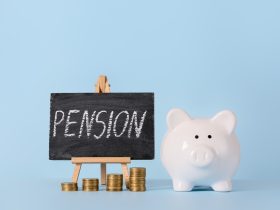The bottom quintile of retired households receives £8,833 a year on average in cash benefits, including the state pension, according to a new study by HUB Financial Solutions
An ongoing debate within government on how poverty is measured in the UK risks overlooking income-poor people.
A new study by advice firm HUB Financial Solutions shows retirees who are dependent on state benefits receive less than those who are better off. Its analysis of ONS data split retired households into five groups by annual income and reveals some sobering statistics.
The firm found the bottom quintile of retired households receives £8,833 a year on average in cash benefits, including the state pension. This is £84 a week less than the £13,220 received by the second quintile and more than £100 a week less than the top quintile.
Those in the top category have an overall income that is five times higher than those in the bottom, and there are concerns that those with low incomes may be falling victim to an unfair system.
This comes at a time when the government is being encouraged to restart work on a new metric to calculate poverty.
Stephen Timms MP and chairman of the work and pensions select committee wrote to the prime minister in March asking for work on a new methodology to resume.
Timms said he was deeply concerned that work on this seems to have ground to a halt and for the government to bring forward a timetable for it to restart without further delay.
In response, Thérèse Coffey MP and secretary of state for work and pensions said in a letter that work on a new poverty metric had been suspended due to the pandemic in order to allow the department to focus on emergency interventions.
Coffey said: My priority is to improve the quality of our statutory measures before considering any further work on the SMC’s measure specifically.
But she confirmed that any new methodology would retain a metric based on absolute poverty.
She stated that the government has always believed that absolute poverty is a better measure of living standards than relative poverty.
HUB Financial Solutions managing director Simon Gray said the findings challenge the notion that most state cash goes to the poorest pensioners – in fact it goes to those in the middle of the income scale.
He said: Our concern is that these ‘property rich, income poor’ people may be put off checking their entitlement to benefits. Government figures show about a million families are missing out on £1.8bn of pension credit each year.







Leave a Reply